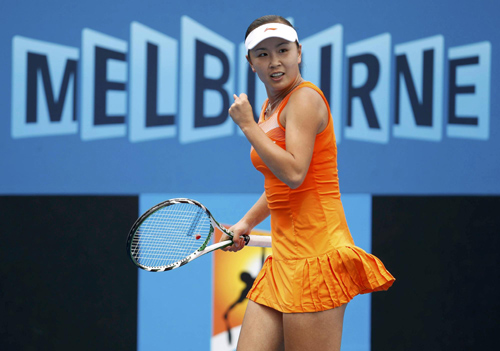You’ve probably heard: If you go to the Australian Open wearing a shirt that says, “Where is Peng Shuai?,” you’ll be asked required to change clothes or leave.
Surely Tennis Australia isn’t against raising awareness about a famous tennis player who accused a high-ranking political figure of sexual assault, was immediately censored, and has only been spotted in obviously scripted scenes witnessed by Chinese state media, right?
Of course not. Tennis Australia has a policy:
“Under our ticket conditions of entry we don’t allow clothing, banners or signs that are commercial or political”
This is arrant nonsense. I’m sure a more thorough statement of this policy is buried somewhere in the ticket terms and conditions that no one ever reads. I’m equally sure it is almost never enforced. And that’s the problem.
First off, most clothing is commercial. Every player on the court wears athletic gear with a (usually prominent) logo on it. Thousands of fans do the same. No, the clothing doesn’t explicitly say, “Buy Adidas!” But it doesn’t have to. Just like the slogan, “Where is Peng Shuai?” doesn’t explicitly say, “The Chinese Communist Party is detaining or censoring someone because they dared to accuse someone of a crime. They shouldn’t do that!”
And let’s face it, a whole lot of clothing is political. You don’t have to believe that everything is political to accept this. Is anyone at Melbourne Park wearing a “Black Lives Matter” shirt or hat? How about the H&M tee in my kid’s wardrobe that says, “There is No Planet B?” Neither statement sets out a policy recommendation, but both are closely associated with political positions. Just like “Where is Peng Shuai?” is inoffensive unless you know why her whereabouts are unknown.
Has anyone been kicked out of the Happy Slam for wearing a BLM shirt or for a gentle nudge toward climate awareness? You know the answer to that as well as I do.
The point is, a sweeping prohibition like Tennis Australia’s is so broad as to be meaningless. It gives them political cover when there’s a slogan they want to remove, but they ignore their own rule 99% of the time. It’s only when a sponsor complains, or when they fear controversy, that the rule is enforced.
The spokesperson I quoted above continued:
“Peng Shuai’s safety is our primary concern. We continue to work with the WTA and global tennis community to seek more clarity on her situation and will do everything we can to ensure her well-being.”
Tennis Australia has now proven that this statement is false. “Commercial or political” messages are fine, except in the rare instances when they don’t approve, or they fear the backlash. Apparently “Where is Peng Shuai?” crosses the line. Don’t be fooled by the claim that this is just routine enforcement of a bland policy.
The WTA has been forceful and consistent in their handling of Peng Shuai’s disappearance, and the organization deserves great credit for that. Tennis Australia’s actions have shown just how easy it is to cave to pressure and become complicit with human rights abuses. We must hold the organization to a higher standard.
